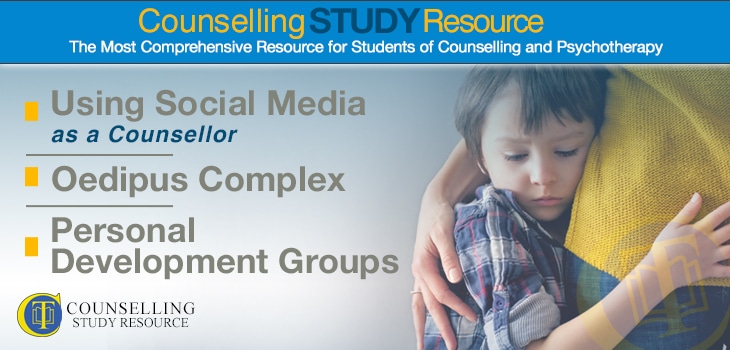Using Social Media as a Counsellor
Ken and Rory discuss how careful we must be as counsellors about what and how much we show of ourselves on social media, e.g. Facebook, Instagram and Twitter. Whatever we write there may be recorded for ever – even if you subsequently delete a post, it could already have been captured as a screenshot.
Nowadays, potential employers often look at job applicants’ social media profiles as part of assessing their suitability, as do potential clients seeking a private-practice therapist. Counselling is a profession, and we are expected to behave in a professional manner, reflecting the good standing of the role.
Counselling Student Library
On-demand access to a rich lecture library covering theory, skills, and professional development for counselling students—Mapped to the UK awarding body criteria
“The Student Library has been BRILLIANT, I can’t recommend it enough!
It has been a lifeline in helping me prepare for practice and my first clients. If you’re considering it, go-for-it, it’s absolutely worth it!”
Kelly – Graduated and now in practice.
The Oedipus Complex
This is a key part of Sigmund Freud’s ideas on child development. He first set out this concept in his book The Interpretation of Dreams. It is based on the Greek myth of Oedipus, told in a trilogy of plays by Sophocles. Tragic hero Oedipus was said to have accidentally killed his father and married his mother, so bringing disaster to his city and family.
According to Freud, boys aged three to five years develop a sexual desire for their mothers and see their fathers as rivals for the mothers’ attention. Freud terms this the phallic stage, and believes it is important in developing sexual identity. These days, the Oedipus conflict may seem uncomfortable and confusing to us, but we may nonetheless be able to spot some elements of truth in it.
For example, we might hear a young boy say, “I’m going to marry Mummy when I grow up.” And many youngsters like to sleep between their parents in bed, so literally coming between them. In another example, some adult women may feel they are expected to mother their male partners.
It is important to remember that Freud lived in very different times, when gender roles were rigidly enforced. Nowadays, mother figures are not always female, and father figures are not always male. In fact, Carl Jung, who worked with Freud, claimed that there is a similar relationship between young girls and their fathers; he called this the Electra complex.



